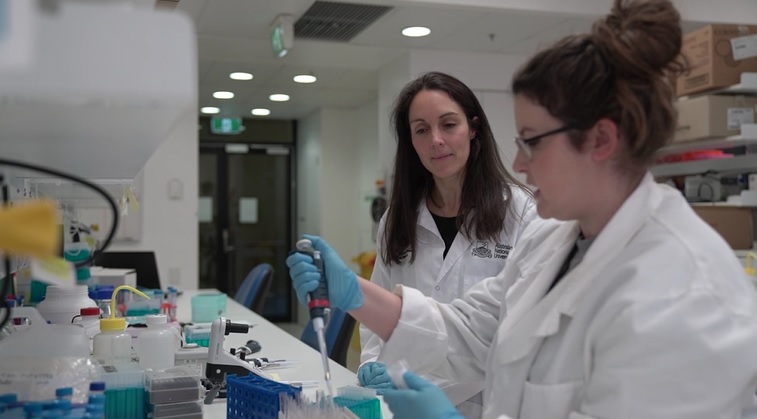Three Australian medical researchers will receive $24 million in funding from a foundation setup by Canberra philanthropist and business tycoon Terry Snow.
Dr Marian Burr from the Australian National University, QIMR Berghofer Associate Professor James Hudson and the Garvan Institute of Medical Research's Dr Owen Siggs will each receive $1 million dollars per year for eight years from Snow Medical.
With Australian universities facing major budget shortfalls due to the coronavirus pandemic, Mr Snow said he hopes the recipients will now be able to focus on their research without worrying about funding.
"With the health and economic challenge Australia and the world face right now, we must invest in the brilliant minds among us who offer solutions for a bright future," Mr Snow said.

"For each of these scientists $8 million is transformative funding that will change the course of their careers and give them the best chance to find cures, treatments and greater knowledge to benefit potentially millions of people's health around the world."
Dr Burr, who is joining the ANU's John Curtin medical School of Medical Research in May next year, will use the funding to continue her research into 'immune checkpoint inhibitors' (ICI) – developing a therapy that helps a patient's own immune system hunt down and eradicate cancer.
"It's like shining a spotlight on the cancer cells which the T cells then see and target. ICI therapy can lead to long-term complete remission, even in patients with very advanced cancers," Dr Burr said.
"What is so exciting is the incredible potential immunotherapy has to wipe out cancer that has spread to different parts of the body. For some cancers that's a complete game-changer."
Dr Siggs intends to use his funding to carry out studies into genomic data from both large populations and individual patients to improve diagnosis and treatment of autoimmune and inflammatory diseases.
"Never before have we been in a position to analyse genomic data from both large populations and individual patients and cells in such detail. I'm very excited to be tackling this important question, with resources that an Australian early career researcher could only dream of," Dr Siggs said.
"The aims of my research are to improve diagnosis and treatment of autoimmune and inflammatory diseases, which affect over 10 per cent of the population and include conditions such as rheumatoid arthritis, multiple sclerosis and Sjögren's syndrome. Most of these diseases have no cure and require lifelong treatment."
Associate Professor Hudson is researching heart disease with a computer modelled, genetic encyclopedia of the heart and organoids – miniature versions of organs derived from stem cells.
"Cardiovascular disease kills more people in Australia than cancer, but the number of drugs currently being developed is about seven-fold lower," Associate Professor Hudson said.
"At the moment we still only understand a fraction of the biology underpinning how the heart works so it's very difficult to figure out exactly what's going wrong. And if you don't know what's going wrong, you can't fix it.
"My research will help us better understand the heart so we may address problems when they arise."
Applications for next year's Snow Medical fellowships open today.
from 9News https://ift.tt/3dx5r3g
via IFTTT


0 Comments